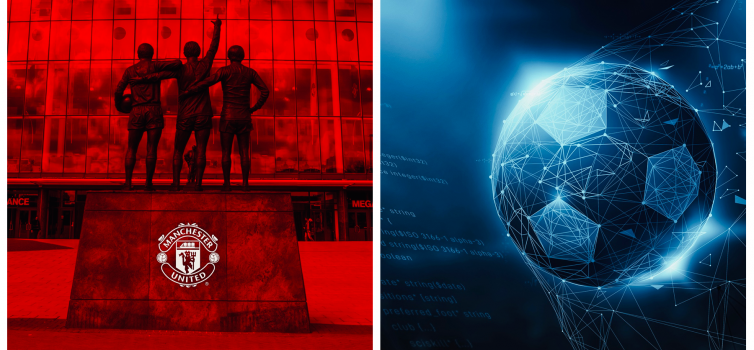Why young Strategy Executive is so important to Man Utd

Written by Simon Austin — April 10, 2020
DEVELOPING young talent has been one of the key tenets of Ole Gunnar Solskjaer’s fledgling managerial career at Manchester United.
Such a commitment can be seen away from the pitch at Old Trafford too. Few outside the club will know the name Chris Chiang, who arrived as Strategy Executive in October 2017 at the age of just 27, but he has become an important figure.
One colleague told TGG: “Chris is a very impressive guy. He pieces together big projects for us, ranging from huge detail to the granular stuff.”
Recently, the Warwick University graduate (pictured) has played a leading role in developing the club's data science strategy, with the ultimate objective of creating the best department of its kind in world football.

Before joining United, he was a manager at accountancy firm KPMG, where he spent five years, and moved into football when Head of Football Development John Murtough cast the net out for someone to focus on longer-term projects at the club.
United have often been criticised for not having a Sporting Director (including here), but in Murtough, Head of Football Operations Alan Dawson and Chiang - along with Executive Vice Chairman Ed Woodward and Head of Corporate Development Matt Judge on the recruitment side - they have personnel who fulfil the functions between them.
We have covered a multitude of job roles on TGG, but never that of Head of Strategy. This is largely because the position is in its infancy in English football, meaning it's hard to find anyone who can talk authoritatively about it.
However, we have managed to find one. Richard Battle was Everton’s Head of Football Strategy from June 2018 to June 2019, having previously worked with the club’s Academy for 18 months, and now heads up his own strategy, information and analytics consultancy called Left Field Football Consulting.
Like Chiang, he previously worked for one of accountancy’s big four (in his case Deloitte) and told TGG about the Head of Strategy role in general (although not about Manchester United specifically).
“The application of strategy is notoriously difficult in football, because it’s a sport that looks one week to the next, one window to the next,” Battle told TGG, “but I do believe there are huge benefits in applying some strategies and principles and making sure there is a resource that has the ability to think ahead.
“Strategy is never an end in itself, it is a means to achieve other things. What I would expect a Head of Strategy to work on would be supporting the different disciplines of a training ground - so coaching, performance analysis, medical, sports science - and developing their activities and being a resource for them.
“The strategy needs to be meaningful in terms of the club’s overall vision and goals and also relatable for the individuals who work around the club.”
At Everton, there were two main parts of his job. The first was asking “what are the things we want to be good at, what does being good at those things look like and how we measure our performance over time in those things?”
The second element was projects.
“Something comes up that requires resource, attention and thinking time that doesn’t fit neatly into one individual’s department, so you’re a resource to lead those projects and develop them over time in collaboration with others around the training ground.”
One of Chiang’s big recent projects has been helping to develop a “proof of concept” for a data science strategy at United.

This includes deciding which departments should be involved, what the inputs and outputs should be, which roles are required, and the profiles of the appointments that need to be made. A headhunting firm has been appointed to find potential candidates to head up the department and the Glazers are said to be "fully invested".
During his time at Everton, Battle (pictured) led a project to help their Academy “take a much more strategic approach to the management of information”, which involved how best to store and process data and then give it to the end user “in a format that enabled them to get the most out of it”.
A large part of his consultancy work now involves advising clubs on their data science strategies.
“If you ask people ‘would you like to have a great availability of more relevant data to help you make decisions?’ I find it hard to believe that too many would say no," he said.
“So the question moves from 'should we do this' to ‘how should we do this?’ My aim is to help clubs improve their information strategies. We're asking, 'What are the things we want to know? What is the data, technology and skillsets needed to put this in place?
"If you have a strong process of working out how the data you collect and analyse will affect a decision then you have actionable insights. In many cases, the value of data will be to supplement the expert knowledge and expertise of the subject-matter experts at a club, rather than to overrule or replace them.
“If the aim of a club is to create a sustainable competitive advantage that can survive changes in individuals and developments of technology then you have a much better chance with a proactive and planned approach.”
Battle believes it is “absolutely early days” for data science in English football, certainly compared to US sports and wider industry, but that the sport has “more data than it has ever had before and that will continue to grow”.
United's data science project has been temporarily stalled by the coronavirus crisis, but setting the department up and carrying it forward will be a major focus for the club over the next five years and more, with Chiang likely to be to the fore.




-1.png)





